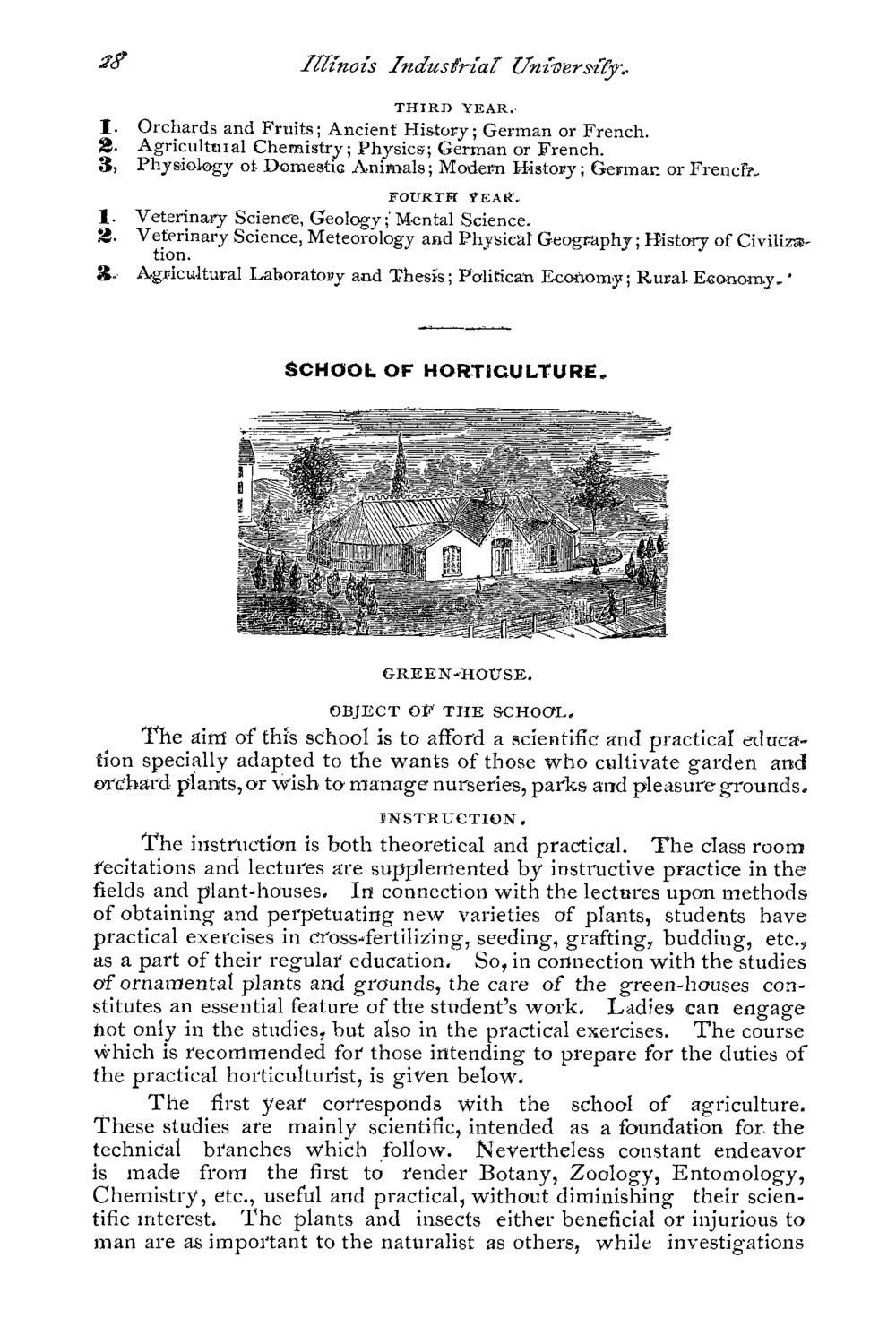| |
| |
Caption: Course Catalog - 1875-1876
This is a reduced-resolution page image for fast online browsing.

EXTRACTED TEXT FROM PAGE:
2& I. 23, Illinois Industrial THIRD YEAR. University.. Orchards and Fruits; Ancient History; German or French. Agriculttiial Chemistry; Physics; German or French. Physiology ot Domestic Animals; Modem History; German or Frencr?. FOURTH -TEAK. 1. Veterinary Science, Geology;' Mental Science. 2- Veterinary Science, Meteorology and Physical Geography; History of Civilization. S- Agricultural Laboratory and Thesis; Political! Economy; Rural- Economy..' SCHOOL OF HORTICULTURE. \ ! ' - * ' - _ _ „__!.„ J _ . , _ _ GREEN-HOUSE. OBJECT OP THE SCHOOL, The aim of this school is to afford a scientific and practical education specially adapted to the wants of those who cultivate garden and orchard plants, or wish to manage nurseries, parks and pleasure grounds. INSTRUCTION. The instruction is both theoretical and practical. The class room recitations and lectures are supplemented by instructive practice in the fields and plant-houses. Irj connection with the lectures upon methods of obtaining and perpetuating new varieties of plants, students have practical exercises in cross-'fertilizing, seeding, grafting, budding, etc., as a part of their regular education. So, in connection with the studies of ornamental plants and grounds, the care of the green-houses constitutes an essential feature of the student's work. Ladies can engage hot only in the studies, but also in the practical exercises. The course which is recommended for those intending to prepare for the duties of the practical horticulturist, is given below. The first year corresponds with the school of agriculture. These studies are mainly scientific, intended as a foundation for the technical branches which follow. Nevertheless constant endeavor is made from the first to render Botany, Zoology, Entomology, Chemistry, etc., useful and practical, without diminishing their scientific interest. The plants and insects either beneficial or injurious to man are as important to the naturalist as others, while investigations
| |